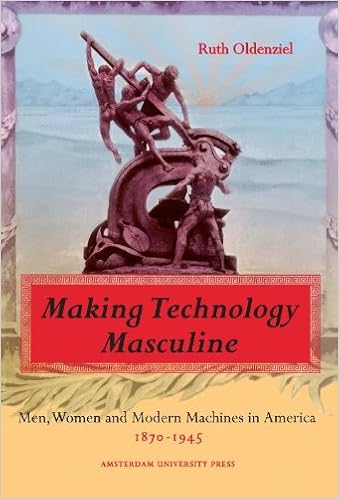
Highly recommended accessibly-written feminist text contributes to history of technology studies and to feminist science studies scholarship.
Oldenziel presents a hundred-year geneaology of our modern idea of "technology" in the US during the 19th-20th centuries, arguing that its definition was explicitly linked to modernist and white male subjectivity and masculine cultural production, while both women's work and the work of racial others was disqualified as non-technological.
Relying on archival research, discourse analysis and feminist theory, Oldenziel examines engineering's creation of a "cultural infrastructure" of myths, metaphors and images which effectively promoted a "male mystique" about men's affinity with machines and computer technologies, as part of the erection of a "a modern male and western prowess." She shows how this discursive formation depended on a corresponding invention of female "technophobia."
To ask, "why are so few women figured in engineering?" is to pose the wrong question according to Oldenziel, since it is biased by the conventional defintion of technology as inherently masculine. Instead we should inquire as to *how* the illusion of the invisibility (and inadequacy) of the labor of women and all non-white subjects was achieved in the official history of technology. Thus Olednziel investigates the legitimation strategies and methods of systemic exclusion according to which only certain inventions/products were considered "technology" and only certain subjects'labor was recognized as "inventive genius" and authorized as "engineering."
This text is a history of engineering, an example of feminist cultural studies and of gender & masculinity studies, and will be of interest to anyone teaching a course on gender + technology. (suitable for undergraduates) I read it for pleasure and found it truly informative, engaging, and inspiring scholarship.
No comments:
Post a Comment